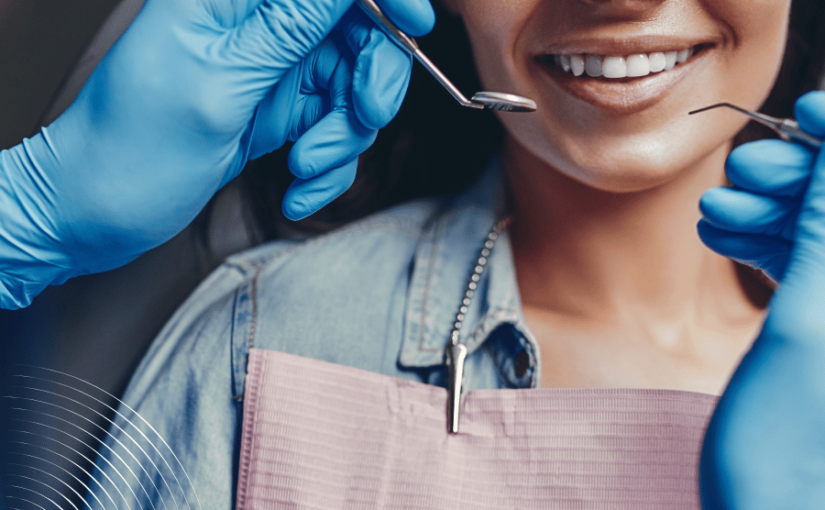By: Dr. Elizabeth Eggert
Whether from a fall, a sports injury, or an accident, dental trauma is common and can happen when you least expect it. It includes any injury to the teeth, gums, lips, or jaw. Let’s dive into untreated dental trauma and what you can do to prevent long-term damage and preserve your smile.
Types of Dental Trauma
Dental trauma can take many forms. It includes chipped or cracked teeth, dislodged or knocked-out teeth, teeth that are jammed into the socket, cuts in the mouth’s soft tissue, or a broken or dislocated jaw.
These issues range in severity and require a variety of treatments.
Signs of Dental Trauma
Signs of dental trauma can vary depending on the type and severity of the injury, but there are several common signs to watch for. A sudden toothache or mouth pain may indicate a crack, fracture, or damage to the tooth’s nerve. Swelling of the gums, lips, or face often accompanies injury, and bleeding can occur if soft tissues or the gumline are affected. Another sign of trauma is a discolored tooth, in which the tooth may appear dark or gray due to damage to the blood supply inside the tooth.
You might also notice a loose tooth, a change in how your teeth fit together when you bite, or even difficulty opening your mouth or moving your jaw. These symptoms could point to more serious issues such as jaw dislocation, tooth luxation, or fractures.
If you experience any of these issues, we recommend you call Eggert Family Dentistry right away. Dr. Elizabeth Eggert or Dr. Jeff Eggert would be happy to talk with you to assess the situation and determine the best path forward.
Consequences of Untreated Dental Trauma
If left untreated, something as seemingly minor as a fractured tooth or a small cut in your mouth can develop into more serious problems.
- Cavities: Harmful oral bacteria can sneak into chips and cracks in teeth and set up camp. These bacteria can then spread, eroding enamel and causing pain, sensitivity, and infection.
- Bite issues: Also known as malocclusion, dental injuries can cause the bite to become misaligned. Trauma can shift teeth out of their proper position or cause damage to the supporting bone and soft tissue. For example, if a tooth is pushed inward, outward, or sideways, it can disrupt how your upper and lower teeth come together when biting and chewing. Similarly, if a tooth is knocked loose or fractured, the surrounding teeth may shift slightly, leading to uneven contact or pressure.
- Tooth loss: A blow to the mouth can cause tooth damage that makes a tooth more susceptible to decay. It can also weaken the tooth, which, left unattended, can lead to eventual tooth loss.
Of course, some teeth get knocked out on contact, this is called avulsion. In this case, we recommend rinsing the tooth under clean running water—being careful not to touch the root—and putting it into a jar of water or milk to preserve it. Call Eggert Family Dentistry right away. In some instances, Dr. Elizabeth Eggert or Dr. Jeff Eggert can reinsert a tooth into the socket, especially if the avulsed tooth is properly cared for and reinserted quickly. - Nerve damage: This occurs when the nerves inside the tooth’s pulp become injured or inflamed. Nerve damage can cause extreme tooth sensitivity, discomfort when chewing, and aching around the base of the tooth. If the nerve issue isn’t addressed promptly, the nerve inside the tooth can become necrotic and die. At this point, Dr. Elizabeth Eggert or Dr. Jeff Eggert will likely recommend a root canal or tooth extraction.
- Gum disease: Commonly referred to as periodontal disease, gum disease often sets in after an injury to the mouth. This is because, when teeth shift around, they can leave areas along the gumline more exposed and susceptible to harmful bacteria. These bacteria can inflame gums and, if they aren’t removed, can harden into tartar. Eventually, the diseased gums can pull away from the teeth even more, leading to additional loose teeth or even tooth loss.
- Facial asymmetry: When dental trauma affects the jaw, it’s crucial to come in to Eggert Family Dentistry so Dr. Elizabeth Eggert or Dr. Jeff Eggert can assess the situation. When the jaw isn’t repositioned, a cascade of issues can ensue, including TMD, inflammation, and jawbone deterioration. In addition to increasing pain and discomfort, it can cause a person’s face to become asymmetric.
- Low self-esteem: Whether it’s a chipped, discolored, or missing tooth or an asymmetric face from a jaw injury, untreated dental trauma can negatively affect a person’s self-esteem. It can make people more timid in social situations and cause them to hide their smiles or even avoid public situations whenever possible.
If you or someone you love has experienced dental trauma—whether recently or in the past—schedule a visit to Eggert Family Dentistry. Dr. Elizabeth Eggert and Dr. Jeff Eggert offer a range of effective treatments to protect your smile and prevent the long-term consequences of untreated dental trauma. Call us today at 651.482.8412!
